Art around the Hearth | Movie viewing inside and outside the Spring Festival stalls

1
"Miracle": A Realistic Fairy Tale of Accurate and Affectionate
Text | Sun Xinran
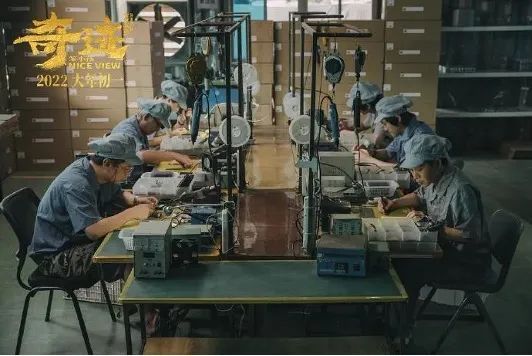
"Miracle Stupid Kid" is like a dart that hits the bull's-eye, but it's not the kind with a sharp front end, but a magnetic attraction - not sharp, but very accurate and coincidental.
Eating buns, hanging on the outer wall of high-rise buildings, Jing Hao's small body is swayed left and right by the high-altitude airflow, the camera is zoomed out, zoomed out, and zoomed out again, he condenses into a little bit, and becomes one of Shenzhen's Jingjie alleys. Su - This is where "Miracle" is truly innovative and pioneering as a main theme movie. The protagonist is no longer an image of a savior driven by noble ideals and patriotism, but a young man who is a migrant worker and a high school dropout. All his sufferings come not from the failure of high ambitions, but from the most basic problems of existence; he may be small, but he is the Odysseus of his own destiny.
When watching movies, I always think of a sentence: money is not everything, but without money it is absolutely impossible. But in Jing Hao's entrepreneurial history, Wen Muye did not focus too much on the intrigue of commercial interests, but aimed at the part of human affection. After all, the protagonist Jing Hao's most original and strongest motivation is family affection, to seize the weak life of his sister (this is the only thing he can grasp, the only thing that can make love attached to it), not the businessman's pursuit of profit: " Miracle is actually a story about love and happiness. The factory manager and the workers are no longer the opposite sides of the exploiting and exploited, but they are both cuddling and helping each other at the bottom. When the entrepreneurial team used clothes braces as guitars and iron sheets as tambourines in the truck compartment, the trucks turned into Noah's Ark carrying the ever-growing "grassroots" power, shining in the wind and rain.
As a propositional composition, "Miracle" inevitably has regrets in the plot: the audience sees the title, and then sees the poor boy with stubborn eyes, and seems to be able to guess the destined happy ending. But under the wheel of the grand era, the attempt to weigh the weight of ordinary people and the vision of "seeing ants" are already worthy of praise. I believe that "Miracle · Stupid Child" will be a good scene.

2
Visual Presentation of the Structural Tension of "The Four Seas" and "Miracle"
Text | Lu Yiran

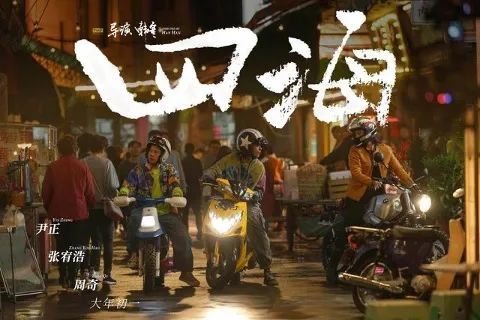
During the Spring Festival, I went to see "The Stupid Child of Miracles" and "The Four Seas". To my surprise, despite the constant criticism of "The Four Seas" on the Internet, I personally like this slightly immature movie. In presenting the situation of young migrant workers in the process of urbanization, the themes of the two films overlap somewhat. Their visual presentations are both impressive and their styles are quite different.
In "Miracle", Wen Muye, a film major, presents a more complete, mature and intuitive visual presentation of the structural resistance faced by the protagonist. The most important image of "Miracle" is the "unpredictable" storm - the contempt of the marketing manager, the embarrassment of being expelled from the house for arrears in rent, and the frustration of hitting a wall everywhere, all condensed in the brewing and brewing of this heavy rain. in descending. In fact, in terms of visual presentation, "Miracle" is far better than "The Four Seas". Therefore, the audience may be more impressed by Wen Muye's lens - when the mountain and rain are about to come and the wind is full, the dark and heavy reflection of the clouds engulfs the reflective glass building; when the typhoon rolls over the sky, the window glass crawling against the rain close-up of the ants; during the cleaning and construction of the outer wall, the towering steel high-rise buildings stand in stark contrast with the small orange-yellow safety helmets of the workers whose lives are on the line.
In terms of visual skills, Han Han is obviously not as good as Wen Muye, who was born in a major. Han Han's narrative method is not image-oriented, but text-oriented - the promotion of the film is more dependent on the characters' lines and the background lyrics, rather than the actors' body movements and screen presentations. However, the performance of this structural tension in "The Four Seas" is still specific, and there are still fragments that I think are good:
——About 1h, the film begins to turn from a light comedy to a tragedy. Zhou Huange (played by Yin Zheng) was very drunk with Wu Renyao (played by Liu Haoran) and others on the beach, and recited aloud "Is the golden scale a thing in the pool, it turns into a dragon when it meets the wind and clouds", and came to his partners one by one : Who is the pool, who is the golden scale, who is the wind and cloud, and who is the dragon. Immediately afterwards, everyone went to swim in the sea, and a golden scale turned into a dragon's jubilation.
However, the "unpredictable situation" of "The Four Seas" also came like the storm in "Miracle" - a huge cruise ship full of happy men and women sailed towards the people swimming in the sea. The gigantic black shadows like the top of a mountain stand in stark contrast to the tiny bodies of Zhou Huange and others floating on the sea. (Just like Wen Muye's lens, the contrast between the ravages of the storm and the tiny body of the ants, the glass building of the skyscraper and the tiny orange-yellow helmets of the workers) - Everyone hurriedly avoided the cruise ship, only Zhou Huange could not dodge. ——So when this huge cruise ship passed by, he guided Wu Renyao all the way, he opened the first nightclub in the town, he borrowed a lot of money, and he was the leader of the motorcycle racing team, and he called himself "the general" With the golden scales of "turning into a dragon", he sank permanently, insignificantly, and silently.
In the cold sea water of the small town, in the midst of unforeseen circumstances, can the golden scales in this life be expected to turn into dragons?
There is also a picture that I think is good. When Wu Renyao and his girlfriend entered Guangzhou City to look for a job, it was about 1.5h:
The emaciated young girl lingering under the huge pillars of the subway station plastered with job advertisements—the image itself is a wonderful metaphor. This can't help but remind me of the scene at the entrance of a family at the crossroads of Yangpu District at the end of last semester: three migrant workers, whose clothes are splattered with paint, stand in a row, holding a job-seeking sign (it reads: Skilled Painter , to be employed, salary negotiable). I even felt some sort of sadness akin to encountering human trafficking—I thought of the grass tag in my hair, the slave market; and the invisible chain around my neck. However, the viewers do not realize that they are sad. They may think that they are free and have the right to choose. After all, it is they themselves, not others, who are selling labor. The three migrant workers holding the sign, both men and women, have a relaxed and happy face. In this city with no fiscal deficit under the epidemic, in this digital economy era still relying on a free labor market - they left their hometown and came to Shanghai, looking forward to a better future.
For a split second, I had the idea to take a photo of them. But I didn't put it into practice. Because I was dizzy and hungry in order to write papers and reports and prepare for my internship, I came to my family to find something to eat. I don't know if my filming is a form of empathy, a form of respect, a form of condescension, a new irony, or something else for them. Anyway, I pretended not to see them, entered the store, ate something, and left. Their pictures did not stay in my mobile phone album, but they lingered in my mind after all.
I don't know if this makes me feel a little sadder.

3
The Hedgehog's Grace: The Hedgehog in the Room and the Fish Outside the Tank
Text | Yan Liyuan

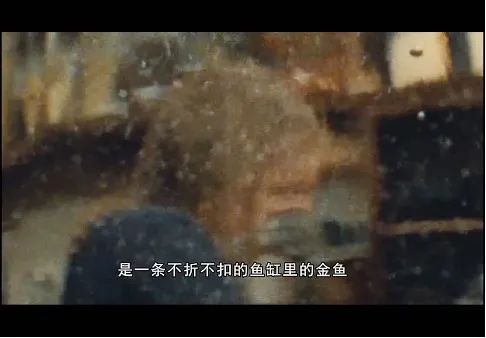
I didn't watch the Spring Festival movies this year, mainly because I felt that the subject matter was too simple, and I didn't have the desire to be "inquired". The word of mouth of "The Four Seas", which was originally expected, is suspected to have collapsed, and "This Killer Is Not Too Calm", as a pass-level comedy, does not seem to give people the motivation to go to the theater. But I still watched some films during the Spring Festival, among which my favorite was "The Elegance of the Hedgehog" by French director Mona Achache.
After almost twenty minutes of watching it, I absolutely fell in love with this movie. The story begins when a twelve-year-old girl from a middle-class French family, Baroma, decides to die—she plans to commit suicide on her 13th birthday. Before that, she would use the camera in her hand to shoot a documentary, recording the boring and vulgar life of "adults" in the French upper class, like "fish in a fishbowl". The film allows us to look at the accustomed and successful adult world from the perspective of a 12-year-old girl, and it's a vulgar display of irony.
Another line of the film is the friendship between the janitor Honey and Baroma and her budding love with the Japanese Ozu Grande. Honey is a widow. Although her status is humble and her appearance is not outstanding, she has always shown a slovenly face and does not want to attract attention, but she has "a room of her own", and the room is full of books. This is Holly. The habitat of the Ni spirit. Only Paloma and Ozugran discovered this place, and finally entered Honey's heart. I am very disgusted that there are friends on Douban who say that the love between Honey and Ozugran is a replica of the "Jane Eyre"-style Mary Sue story. This is a very vulgar statement in my opinion, comparing love in Jane Eyre or The Grace of the Hedgehog to a Mary Sue plot in a modern romantic drama is essentially a surrender to worldly logic, they can only watch To the difference in appearance, status and money, I can't see or understand the "equality of souls" in "Jane Eyre", and I don't understand how the books in Hani's room are to her and to Barlow, who can really see this room. The meaning of Ma and Ozugran. Honey's door lock is for this kind of person.
The movie doesn't make it clear why Paloma didn't decide to die in the end, but I think it's because Honey showed her the possibility of another life when she excitedly said to her mother "I'll be a concierge in the future" At that time, hope for the future may have overcome the death-to-death mentality generated in nothingness? Honey shows a "hedgehog" who can't fit into the mundane standards of success, but can also have a "room of his own" and can achieve grace in the spiritual world. And the "fish in the fish tank" can also be reborn after being sentenced to death. This fish reminds me of the fish that Emily released at the beginning of "Amelie", that one symbolizes the desire for freedom and connection, this one represents life and the power of life.

4
'Carnival': The Damaged Girls
Text | Dragon

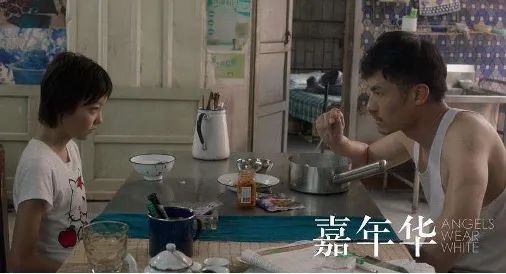
I watched "Carnival" during the holiday. This film bravely touched a series of secret topics: sexual abuse of minors, single-parent families, undocumented working girls, women who lost their footing, etc., and preciously avoided stories and characters becoming the subject matter The destiny of service. Different from the cruelty of the plot itself, director Wen Yan's handling is unexpectedly calm and restrained, and there is no exciting plot collision or emotional release in similar films. He uses a lot of scenes without dialogue and blank space to express the psychology of the characters. The tone of the whole film is so quiet. Only after the experts gave false test results, Xiaowen's father lost his temper and seemed to break the silence. But the next shot is of Xiaowen, who knows the news, looking out the window silently, silently implying that she will jump off the building. Driven by realism, this silence is manifested as numbness and indifference, and ultimately it is impossible to hope for the arrival of a savior.
In the film, after Xiaowen's mother learned that her daughter was sexually assaulted, the slut humiliated and blamed her daughter's love of beauty and tortured her, causing Xiaowen to run away from home. On the one hand, Xiaomi was prudently protected by life experience, and at the same time, he was deeply attracted by the huge Monroe statue on the beach, but the statue was first posted with a blasphemous advertising leaflet, and then it was directly removed at the end of the film. Under the violence of patriarchy, it is not only the girls' bodies and minds that are destroyed, but also their yearning for "beauty".

5
Heidi and Grandpa: Innocent humanity shines
Text | Cat Master

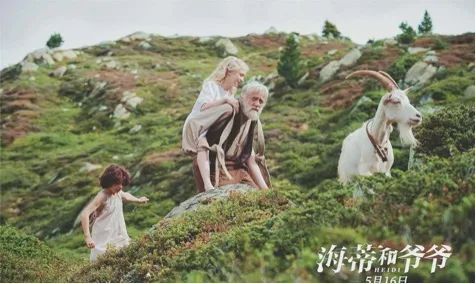
On the evening of New Year's Eve, I watched Heidi and Grandpa with my family. In order to welcome the New Year, we chose a more tender movie to watch as a Spring Festival movie in a sense.
The background of the story is in an idyllic country world in Europe, a little girl Heidi lost her parents and was sent to her grandfather by her aunt. In getting along with Heidi, the elderly grandpa felt trust and love for the first time. He also opened his heart and gave the little girl's family care. After that, for her own benefit, the aunt sent the little girl to a noble family to be a companion to the noble lady. The noble lady Clara is an elegant and decent young girl who cannot stand, almost the same age as Heidi. Heidi's rude innocence contrasts sharply with Clara's graceful squeamishness. Heidi didn't know a word, often got into trouble, and had no manners, but she brought Clara a new world, a pure joy. However, Heidi did not want to stay in such an aristocratic city, she longed for freedom, longing to return to her snow-capped meadows and live with lambs, friends and grandpa. Heidi's frequent sleepwalking made everyone understand that such a free bird should not be confined in such a huge city, so Clara's father and grandmother decided to send Heidi back to the country. They also sent Clara to the countryside to experience rural life. In the process, Clara successfully overcame the psychological barrier and got up and walked. Years of mental disability, healed at this moment.
This kind of story is very simple, reminds me of "Secret Garden" and "The Little Princess", the power of truth, goodness and beauty, but at the same time, many worldly elements are added, which makes people feel a kind of spiritual warmth and cleansing. In such a story, there is no absolute villain, but everyone, even the most positive and kind character, has their own desires and loopholes. Each of the protagonists of the story embodies more or less the pain—the process of healing. There may be different cures for the fears and pains deep in their hearts, but in the final analysis, they choose to believe in or re-choose to believe in the pure and kind power of the world, that is, to cast aside the shackles of the secular world after seeing that the mountains are not mountains. Through the plot lines of different classes of people, the movie shows that this choice is full of courage, regardless of whether it is poor or rich, and each embraces a new and beautiful life. When they finally laugh under the Alps, they can feel a kind of radiance from the innocence of humanity - believing in love, believing in beauty.

Text | Sun Xinran Lu Yiran Yan Liyuan Dreron Cat Master
Figure | From the Internet
Editor | Li Jingxuan
Matters Editor | Francis
Review |
Around the Fire (ID: weilu_flame)

The pictures in the text are not used for other purposes without consent
You are welcome to comment below the article to exchange discussions with the Ios team and other readers
If you want to know about the fireplace and read more articles, please follow this official account and click the corresponding menu column on the official account page

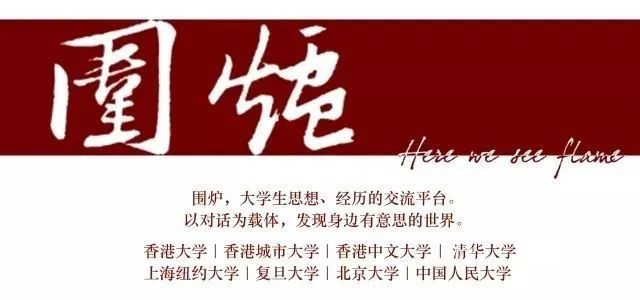
Like my work? Don't forget to support and clap, let me know that you are with me on the road of creation. Keep this enthusiasm together!

- Author
- More